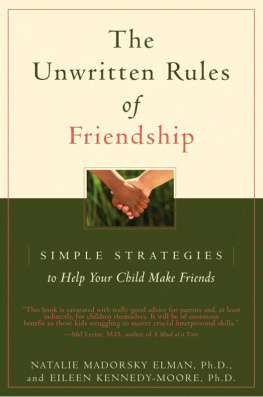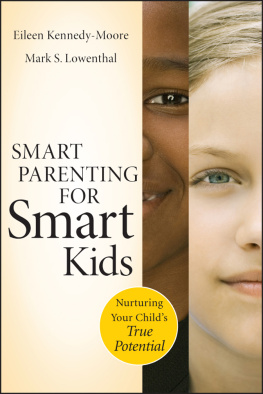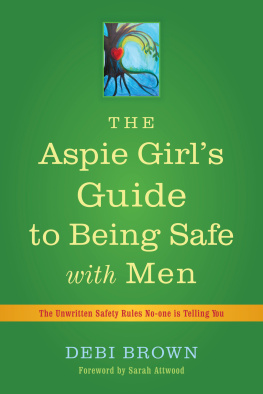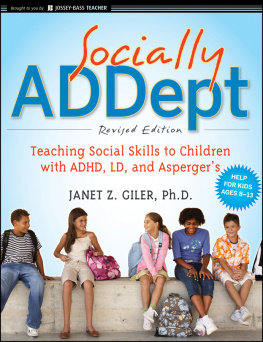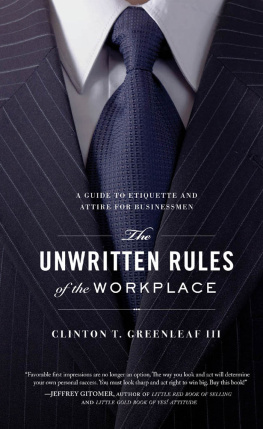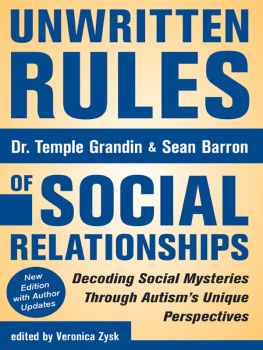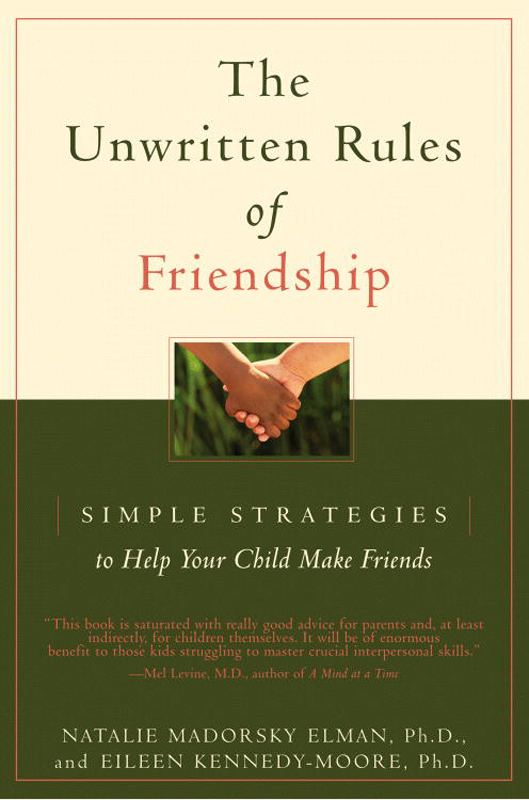Copyright 2003 by Natalie Madorsky Elman and Eileen Kennedy-Moore
All rights reserved. No part of this book may be reproduced in any form or by any electronic or mechanical means, including information storage and retrieval systems, without permission in writing from the publisher, except by a reviewer who may quote brief passages in a review.
The authors are grateful for permission to reprint Ten Ways to Resolve Conflict 2000 National Liberty Museum. By permission of the National Liberty Museum, Americas Home for Heroes, 321 Chestnut Street, Philadelphia, PA 19106.
Hachette Book Group
237 Park Avenue
New York, NY 10017
Visit our Web site at www.HachetteBookGroup.com.
First eBook Edition: December 2008
ISBN: 978-0-316-05583-3
OTHER BOOKS BY THE AUTHORS
NATALIEMADORSKYELMAN
The Special Educators Almanac: Ready-to-Use Activities for a Resource Room or a Self-Contained Classroom
Super Sayings: Super Ways to Teach Idioms to Kids
The Resource Room Primer: Teaching Techniques for Developing, Implementing, or Improving a Resource Room Program
EILEEN KENNEDY-MOORE
Expressing Emotion: Myths, Realities, and Therapeutic Strategies
(with coauthor Jeanne C. Watson)
Twelve Ways to Get Your Parents Attention (Other Than Hitting Your Sister), a book for children
This book is dedicated to Freda Lafcovitz Madorsky, whose beautiful memory has made an indelible imprint on the ideas of this book.
N. M. E.
To my children,
Mary, Daniel, Sheila, and Brenna
E. K-M.
Why We Wrote This Book
Natalie
It was during my first year as a teacher of learning disabled children that I realized how misunderstood children with social skill deficits can be. The kids whom I saw with reading or math difficulties garnered sympathy and lots of instructional support, but the children with social problems were often met with irritation and rejection from both staff and students. And they received little or no help.
One little boy, whom Ill call Bobby Murphy, really stands out in my memory. One day, it was my turn to be on duty as the teacher responsible for dealing with discipline problems at our public elementary school. Id just gotten back from lunch, when I heard a buzz from the principals office. Bobby Murphy was causing trouble on the bus again, the secretary said over the intercom. Were sending him down for you to deal with him. Id heard about Bobby Murphy. Everybody in the school had. The word in the teachers lounge was that he was a holy terrorthe meanest, toughest kid in the school. I took a deep breath, straightened my spine, and prepared myself to deal firmly with this future hoodlum. When I heard a knock, I strode to the door expecting the worst. What I saw was a skinny little freckled boy with a tear-stained face. The bad boy of the school stood trembling in the doorway of my classroom.
I invited Bobby in, and together we began unraveling what had happened on the bus. The story was one that I have heard repeatedly since then. Like many children with social skill deficits, Bobby was totally unaware of his role in causing all the mayhem. He claimed he was just kidding. He was mystified by the angry responses he elicited from both adults and children. He was miserable and very much alone.
Im an educator, a speech therapist, and a learning consultant in private practice. As the founder and director of the Summit Center for Learning, Ive been leading social skills training groups for more than two decades. Ive helped hundreds of children learn the Unwritten Rules about how to get along with their peers. Teaching the Unwritten Rules directly gives children like Bobby Murphy the crucial social knowledge that they havent managed to pick up on their own. It opens the door to social success for children who have always felt like outsiders.
The flash of understanding that Ive seen in the eyes of children when they grasp an Unwritten Rule is what inspired me to write this book. I wanted to be able to share with parents the tried-and-true techniques that Ive used in my groups. I know these techniques work, and I wanted to give parents a chance to dramatically change their childrens lives for the better.
Eileen
My work involves providing psychotherapy to individual children, adults, and families. One of the most common concerns that parents mention is their childrens friendship problems. Just about every child struggles socially at some point. They grapple with being teased, being the odd one out in a threesome, trying to find a buddy to play with at recess, or feeling lost in a new classroom where they dont know anyone. Although these kinds of problems are normal, they can be very painful. As a parent, I can understand my adult clients desire to do whatever they can to help their children make and keep friends.
Sometimes social difficulties go beyond occasional glitches to become more enduring problems. Through my work, I know how hurt and lonely elementary school children can feel when they are stuck in the role of outsider. When children are rejected again and again by their peers, they generally start to see themselves as unlikable.
This book offers a message of hope. It says that you can help your child learn to get along better with others. Once you understand how and why your child is stumbling socially, you can take steps to smooth the way for him or her. You can work with your childs personality rather than against it, and help your child grow and develop socially in ways that fit with his or her unique strengths.
As a therapist and a mother, Ive seen how painful it is for children when they feel like they have no friends. But Ive also seen how the right kind of coaching can make it possible for children to feel more capable, comfortable, and confident in social situations. Natalie and I wrote this book because we care about children, and we share a commitment to helping children gain the knowledge and skills they need to build fulfilling relationships.
The Unwritten Rules of Friendship: Simple Strategies Every Child Needs to Know
Its happening again. Your child runs into the house and cries,
Mommy, nobody wants to play with me.
All the kids are picking on me.
Nobody likes me.
Remarks like these break a parents heart. You see how crushed your child feels. You worry and wonder, Why dont the other kids like her? Or maybe you have some inkling that your child is doing something to drive other kids away. You feel frustrated and think, If only she werent so shy, or so bossy, or so aggressive, or such a sore loser... Mostly, you feel helpless. As much as youd like to, you know you cant make friends for your child, and you cant protect her from teasing or unkind remarks. But you wish there were something you could do to make it easier for your child to get along with others.
THE CONSEQUENCES OF FRIENDSHIP PROBLEMS
Almost every child has trouble with social relationships in some way, at some time. Having an argument with a friend, dealing with teasing, being excluded from a group, and trying to find a buddy in a new classroom are painful but typical childhood experiences. While some kids sail through social situations, weathering these normal friendship glitches fairly easily, others constantly struggle and flounder.
When children have trouble relating to their peers, they suffer. Other kids reject, ridicule, or ignore them. They feel lonely and isolated. Moreover, children rarely just outgrow social problems. Elementary school children who dont have a best friend tend to become lonely young adults.

